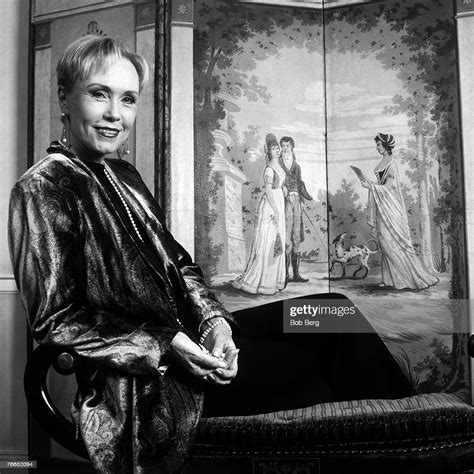A Quote by Robert A. Heinlein
A dying culture invariably exhibits personal rudeness. Bad manners. Lack of consideration for others in minor matters. A loss of politeness, of gentle manners, is more significant than is a riot.
Related Quotes
GENTLE READER: You, sir, are an anarchist, and Miss Manners is frightened to have anything to do with you. It is true that questioning the table manners of others is rude. But to overthrow the accepted conventions of society, on the flimsy grounds that you have found them silly, inefficient and discomforting, is a dangerous step toward destroying civilization.
What my children appear to be on the surface is no matter to me. I am fooled neither by gracious manners nor by bad manners. I am interested in what is truly beneath each kind of manners...I want my children to be people- each one separate- each one special- each one a pleasant and exciting variation of all the others
This is another thing which I really like investigating in my novels: what is it that makes an intimate society, that makes a society in which moral concern for others will be possible? Part of that I think are manners and ritual. We tried to get rid of manners, we tried to abolish manners in the '60s. Manners were very, very old-fashioned and un-cool. And of course we didn't realise that manners are the building blocks of proper moral relationships between people.
Manners or etiquette ('accessibility, affability, politeness, refinement, propriety, courtesy, and ingratiating and captivating behavior') call for no large measure of moral determination and cannot, therefore, be reckoned as virtues. Even though manners are no virtues, they are a means of developing virtue.... The more we refine the crude elements in our nature, the more we improve our humanity and the more capable it grows of feeling the driving force of virtuous principles.




































